

Rental agreements are contracts between landlords and tenants for leasing residential or commercial property.
These contracts are legally binding agreements that outline the terms (rights and responsibilities) required of both parties. Terms generally include start date, end date, rent amount and due date, late fees, security deposit requirements, and more.
Landlords can choose from a variety of rental or purchase agreements based on their needs for the property:
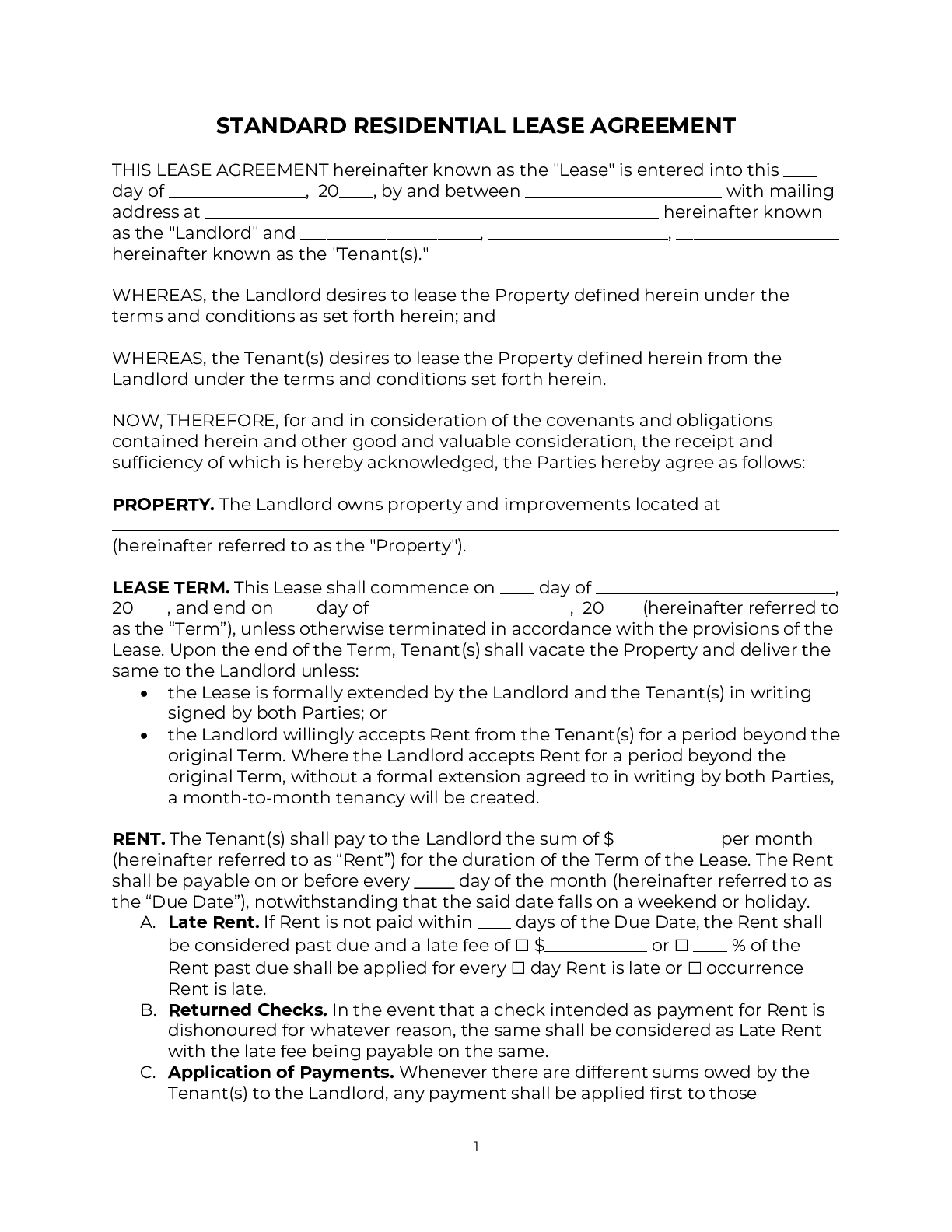
A standard residential lease agreement is a contract for a tenant to use a landlord’s residential property in exchange for paying rent.
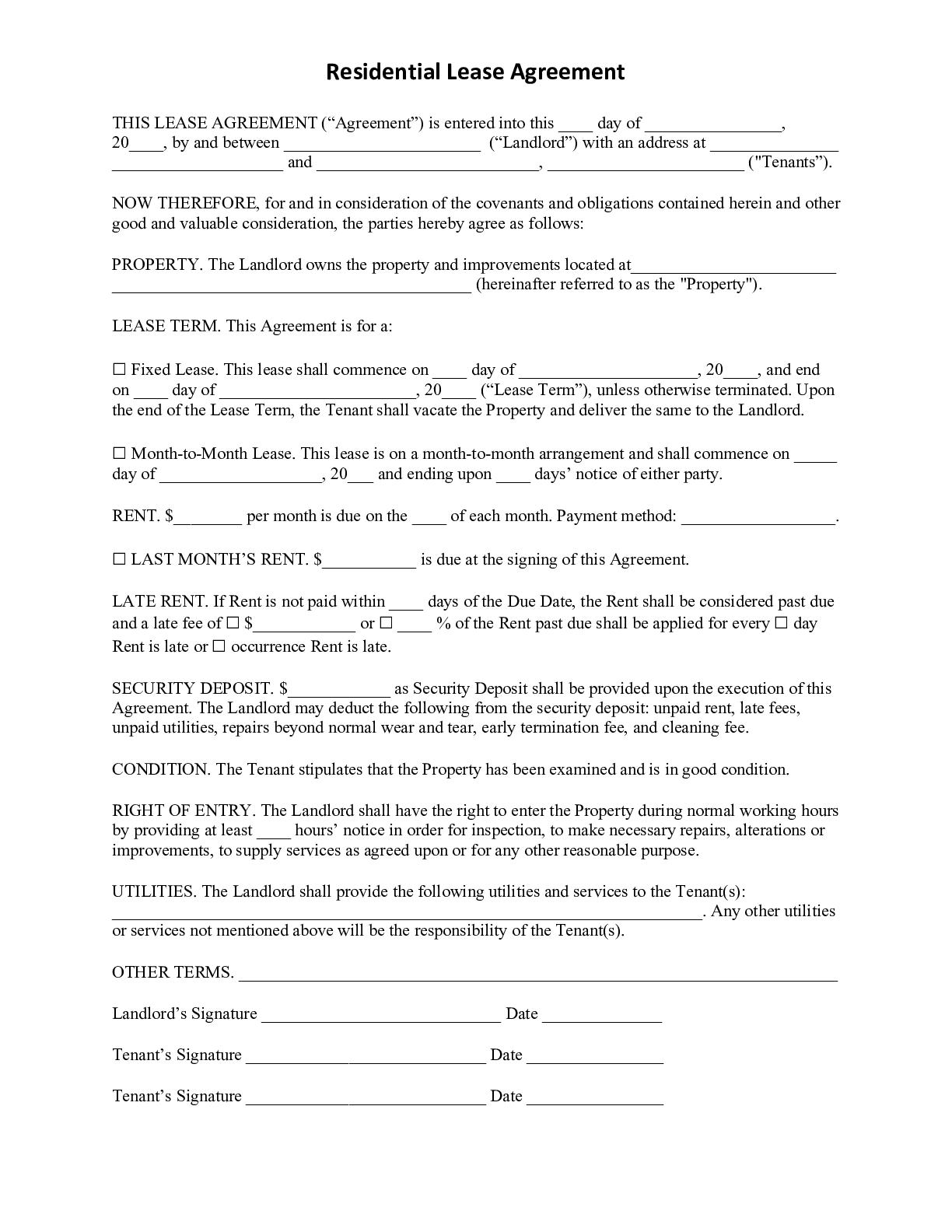
A simple one-page lease agreement is a rental contract between a landlord and a tenant.
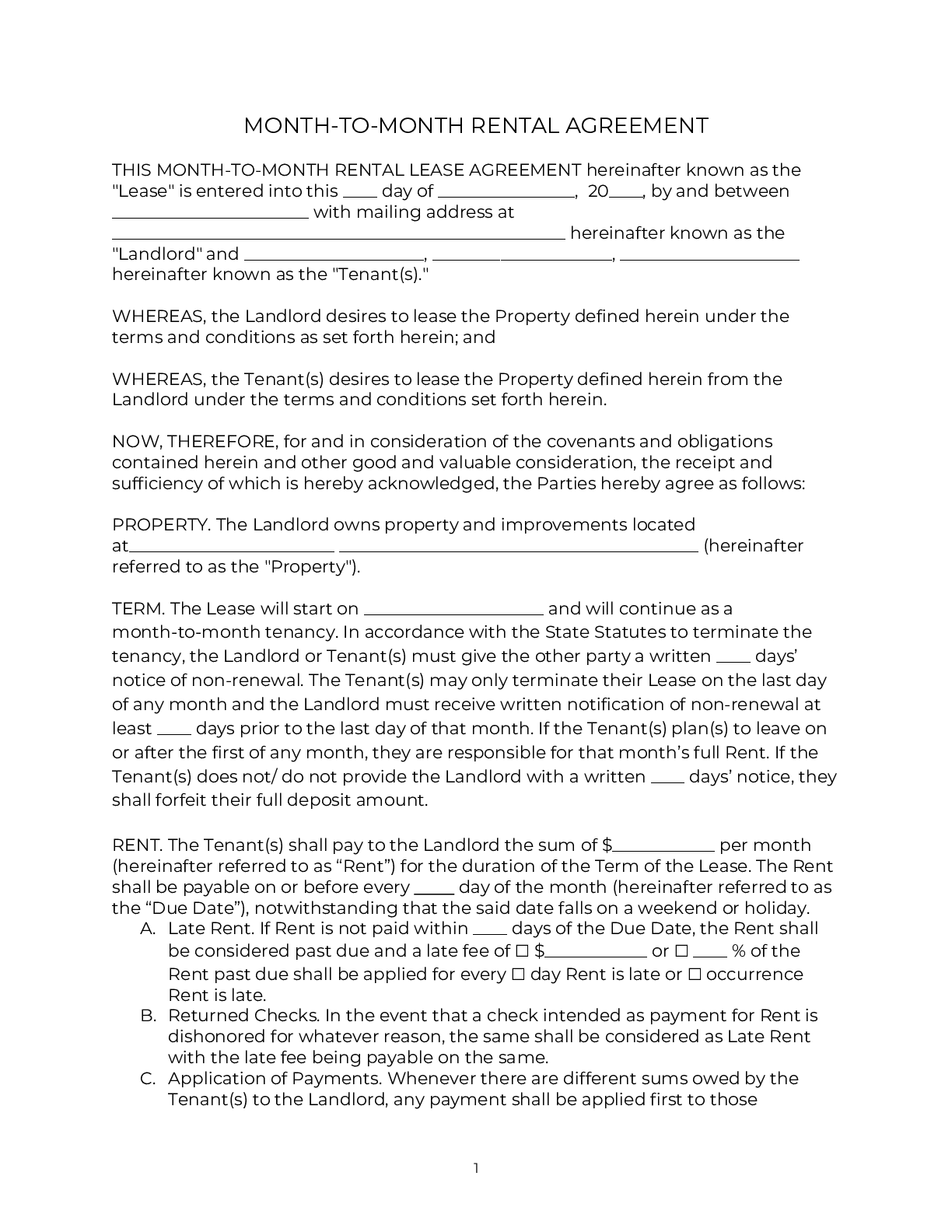
A month-to-month rental agreement is a contract which allows a tenant to rent property from a landlord, for one month at a time, in exchange for a rental payment.
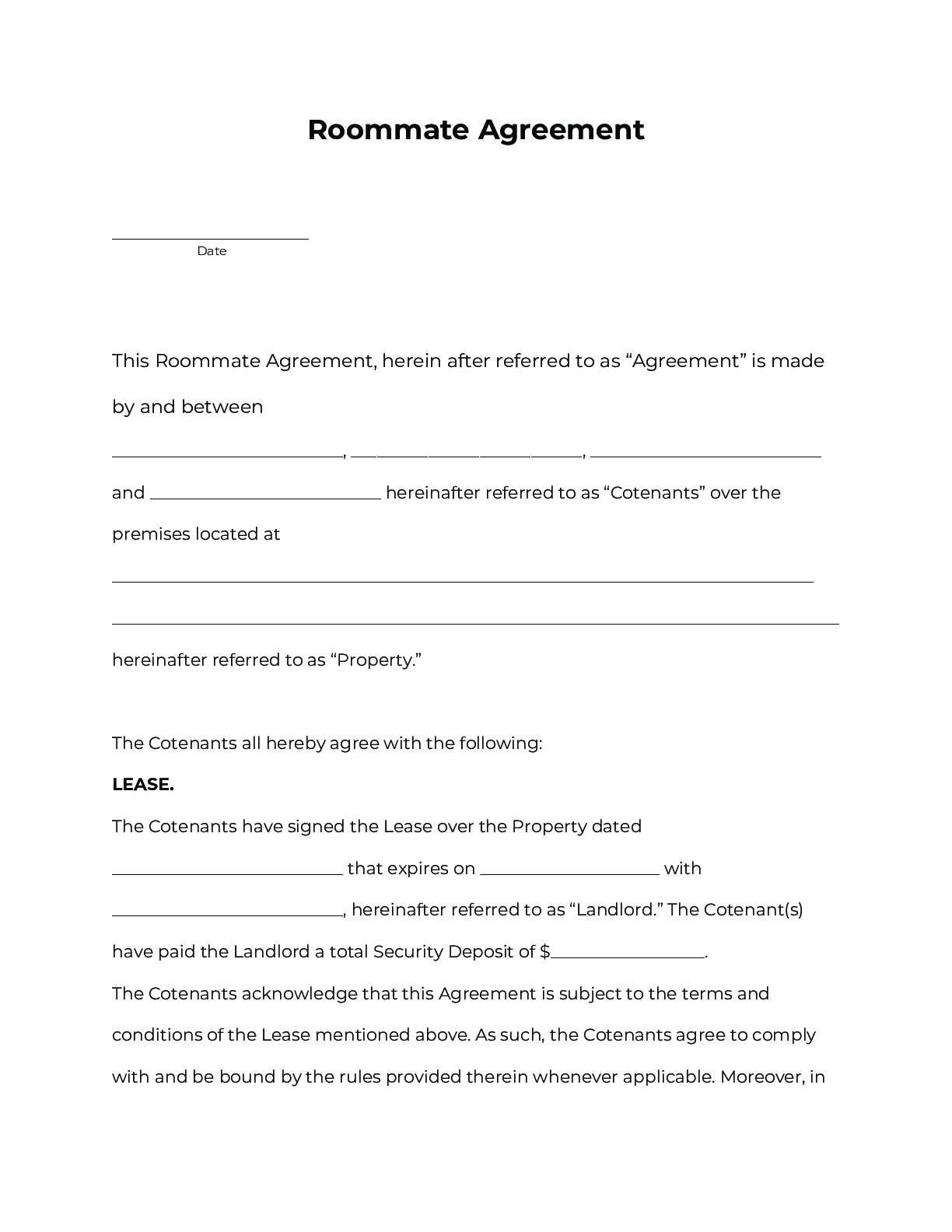
A room rental agreement is a contract between a tenant and a roommate who occupies a portion of a rental property while sharing its common areas.
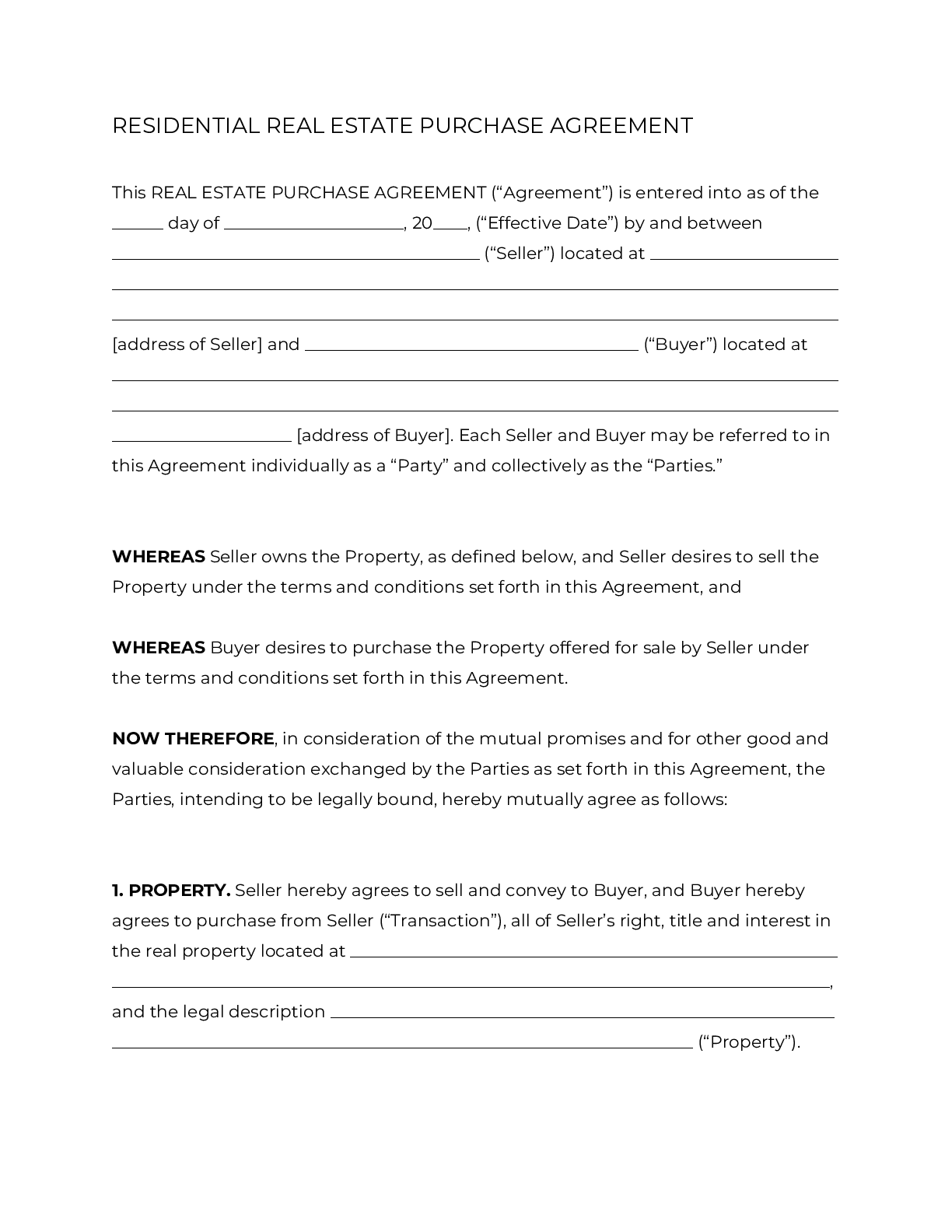
A real estate purchase agreement is a binding agreement where a seller and a buyer agree and commit to the terms of the sale of real property.
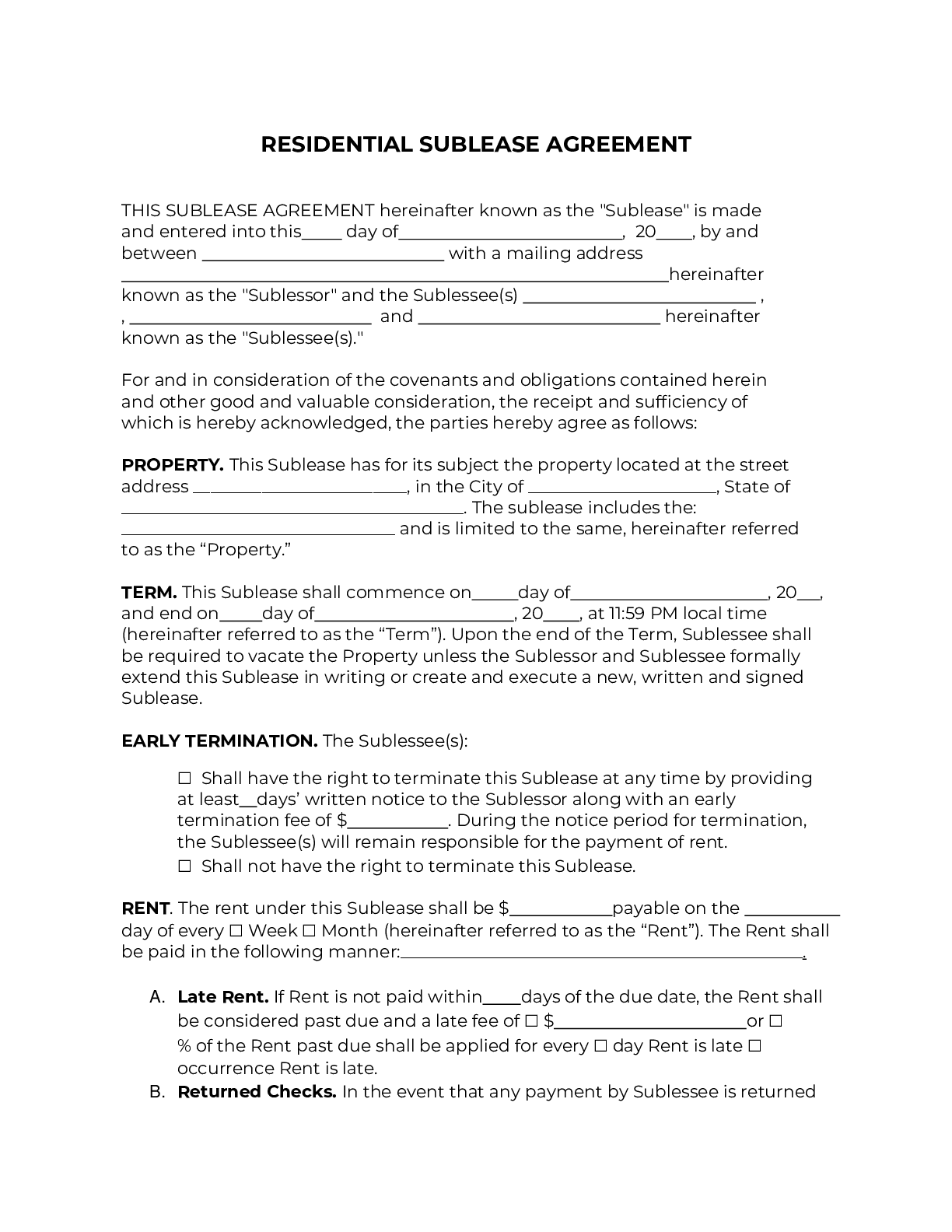
A residential sublease agreement is a contract whereby a lessee or tenant rents out the leased property or some part of it to another person, the sublessee.
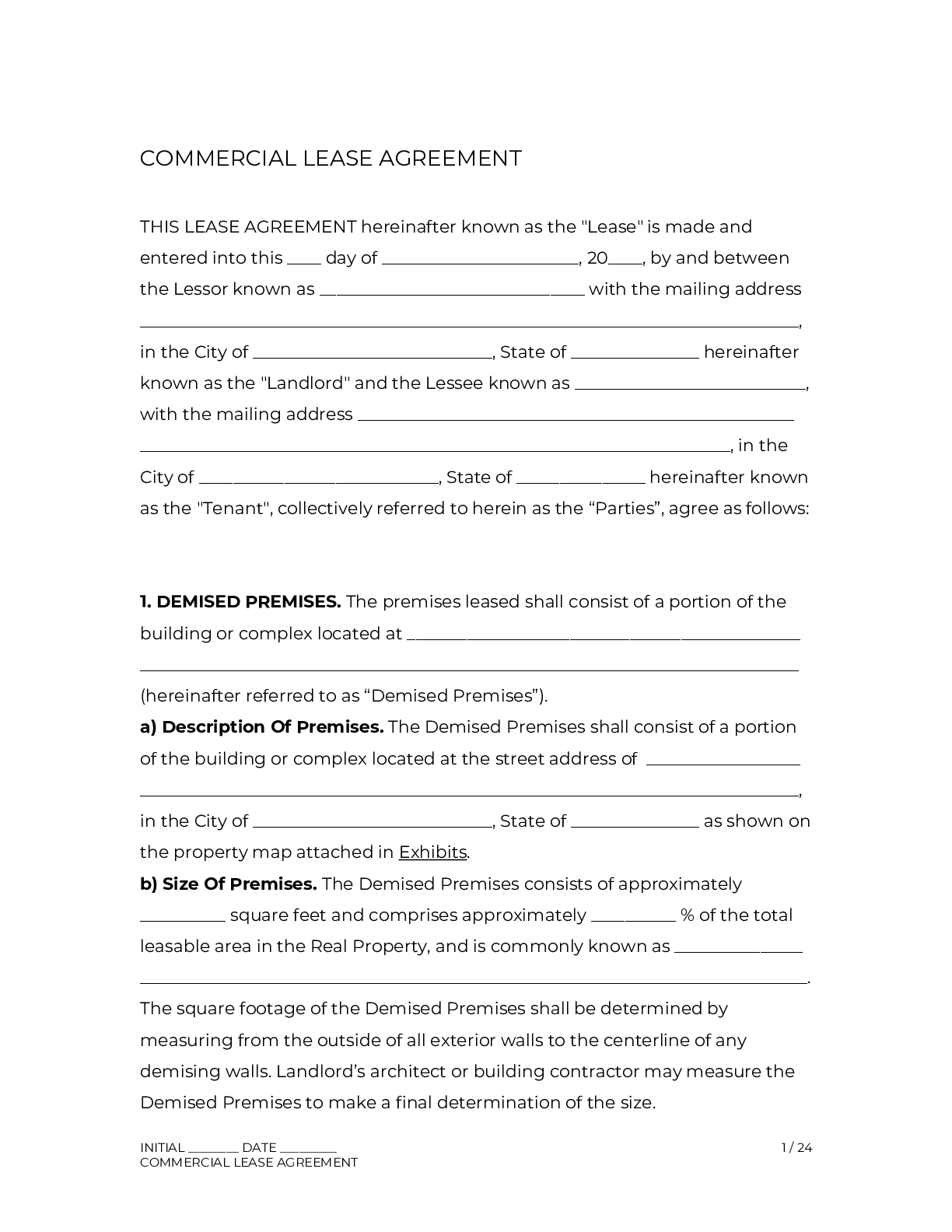
A commercial lease agreement is a binding contract between a landlord and a tenant for the rental of a property specifically for business purposes like office, retail, commercial or industrial space.
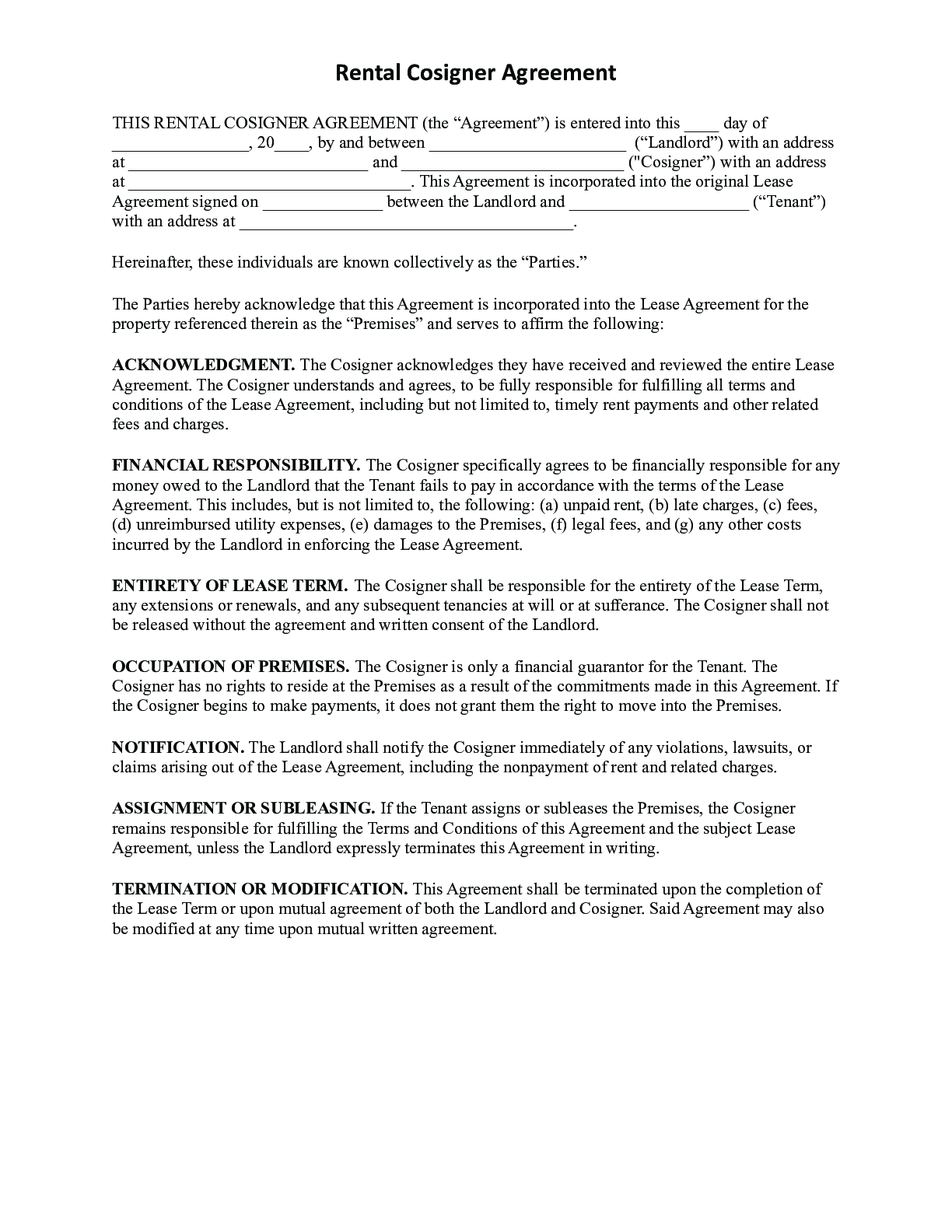
A rental cosigner agreement is a contract incorporated into a lease agreement between a landlord and a cosigner for the tenant.
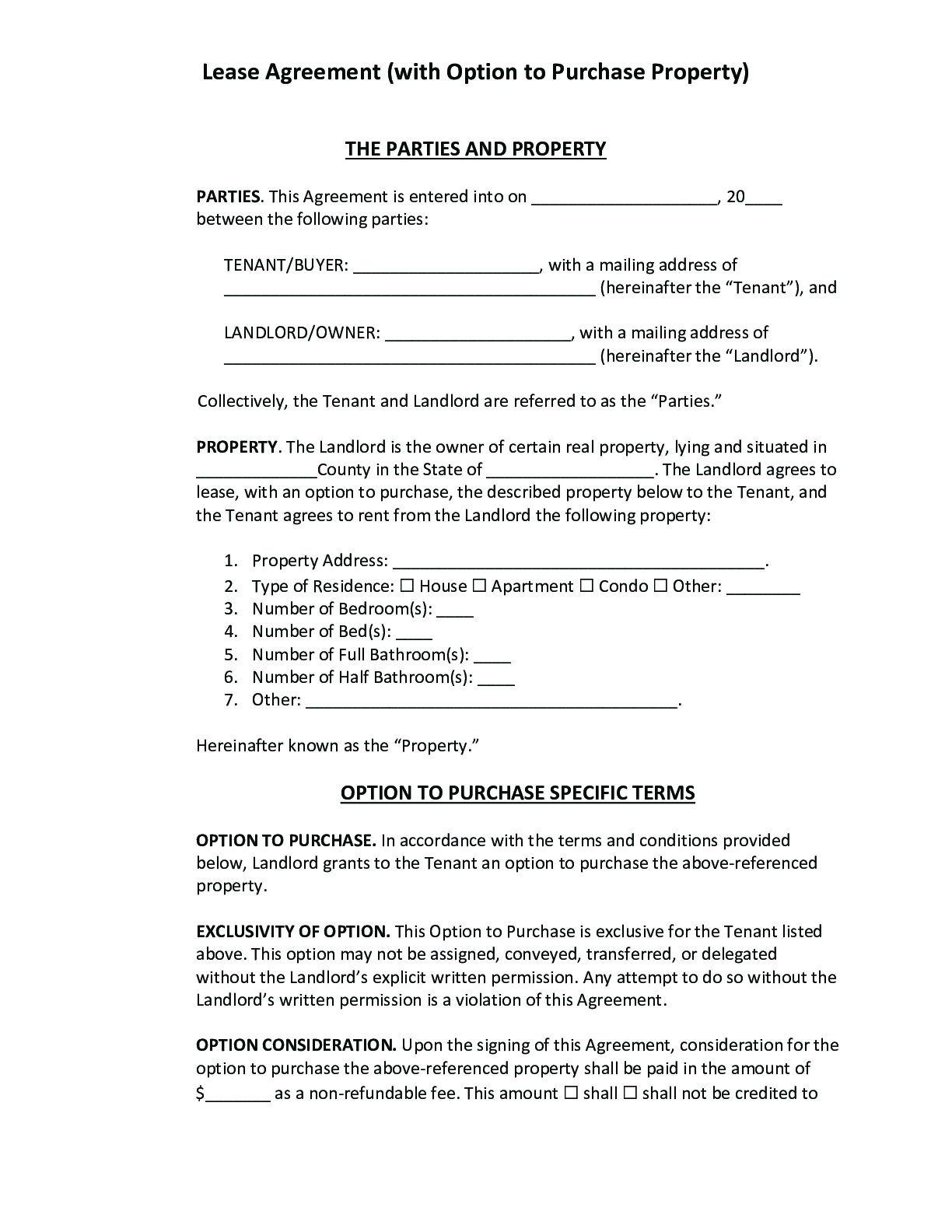
A rent-to-own agreement is an agreement between a landlord and a tenant to rent a property with the option to purchase before the lease agreement expires.
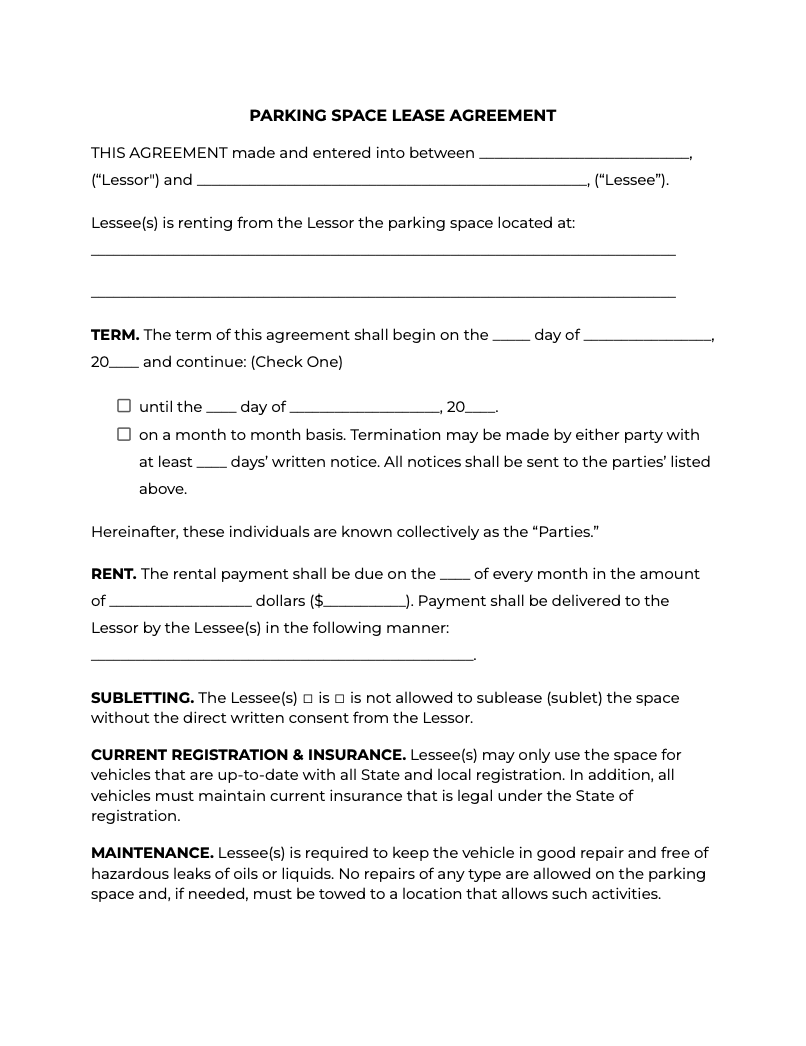
An agreement to rent out a specific parking space. This is often used in conjunction with a rental agreement where the tenant also needs a place to park.
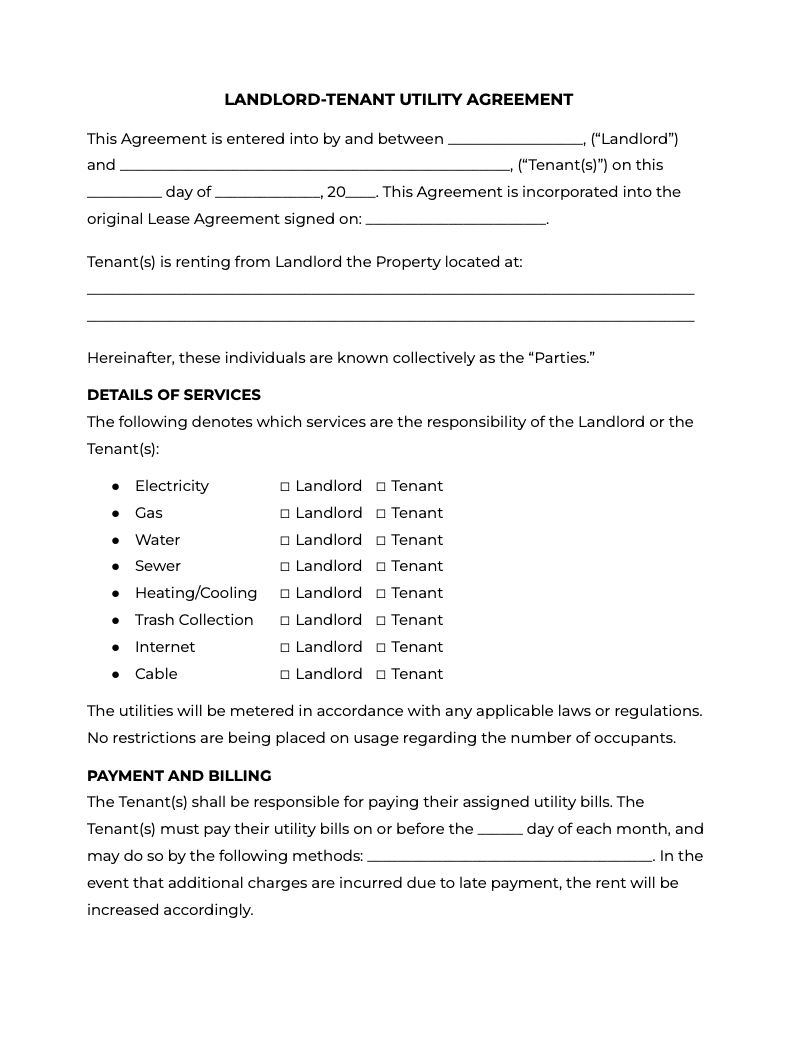
A landlord-tenant utility agreement defines which utililities the tenant is responsible for paying, what date they are due, and any other specific details that may need to be included.
In addition to the main portion of the rental lease agreement, landlords often include addenda that specify or disclose additional terms. Here are some of the most common ones:
In addition to creating ironclad rental agreements, landlords must have an understanding of landlord-tenant law in their state. For example, states have differing rules around security deposits, raising rent, property entry, and more.
Each state has its own rules about the maximum security deposit amount landlords are allowed to collect:
Each state has codified how long landlords have to return a security deposit to a tenant after the lease has ended:
Most states allow landlords to charge a late fee the day after rent is normally due. However, these states require a grace period before landlords can assess a financial penalty:
Most states have set maximums for how much a landlord can charge in late fees. Even states without specific limits can still only charge “reasonable” amounts, or else risk being taken to court. “Reasonable” is generally defined as no more than 10% and should be related to actual cost the landlord incurs.
Landlords cannot raise rent during the lease, but they are allowed to raise rent at the end of a lease term. This means that a landlord can, for example, raise the rent at the end of every month for a month-to-month contract.
Some states have rent increase laws that limit how often a landlord can raise the rent:
Many states require a specific type and amount of advance notice to the tenant before a landlord can enter a rental property. Other states simply require “reasonable” advance notice, through any method that effectively communicates the reason and time of entry.
| State | Default Required Notice | Allowed Notice Types | Possible To Waive Notice Requirements?* |
| Alabama | 2 days | Any actual notice (written posting on main door of residence is preferred) | Yes, for separately posted scheduled services |
| Alaska | 24 hours | Any actual notice | No |
| Arizona | 2 days | Any actual notice | Yes, when addressing a tenant repair request |
| Arkansas | “Reasonable” notice | Any actual notice | Yes |
| California | 24 hours (6 days for mailed notice) | Written notice only (with some special exceptions) | No |
| Colorado | “Reasonable” notice (48 hours in specific cases) | Usually written, depends on entry purpose | Yes |
| Connecticut | “Reasonable” notice | Any actual notice | No |
| Delaware | 48 hours | Written notice only (but actual notice may count in court situations) | Yes, in a separate written agreement before the start of the tenancy |
| Florida | 24 hours for repairs, “reasonable” notice otherwise | Any actual notice | No |
| Georgia | “Reasonable” notice | Any actual notice | Yes |
| Hawaii | 2 days | Any actual notice | No |
| Idaho | “Reasonable” notice | Any actual notice | Yes |
| Illinois | “Reasonable” notice | Any actual notice | Yes |
| Indiana | 24 hours | Any actual notice | No |
| Iowa | 24 hours | Any actual notice | No |
| Kansas | “Reasonable” notice | Any actual notice | No |
| Kentucky |
(KY-URLTA communities only)
(TN-URLTA counties only)
Here are some of the most common questions landlords ask about rental agreements:
Landlords must have a lease agreement with their tenants in order for it to be a legal business deal.
While this agreement is almost always in writing, an oral agreement can be legally binding, provided the deal is for one year or less. Oral agreements are difficult to enforce, as there are no written rights or terms. For this reason, the vast majority of landlords use written rental lease agreements.
Landlords can create their own lease agreements. Due to the complicated nature of lease agreements, landlords often start with a template and then have a landlord-tenant attorney look over the agreement. Then, the landlord can use the same basic template moving forward without having an attorney look it over each time.
Most rental agreements, at a minimum, should contain the following:
(2) Upon termination of a tenancy, any tenant may notify the landlord in writing of such tenant’s forwarding address. Not later than twenty-one days after termination of a tenancy or fifteen days after receiving written notification of such tenant’s forwarding address, whichever is later, each landlord other than a rent receiver shall deliver to the tenant or former tenant at such forwarding address either (A) the full amount of the security deposit paid by such tenant plus accrued interest, or (B) the balance of such security deposit and accrued interest after deduction for any damages suffered by such landlord by reason of such tenant’s failure to comply with such tenant’s obligations, together with a written statement itemizing the nature and amount of such damages. Any landlord who violates any provision of this subsection shall be liable for twice the amount of any security deposit paid by such tenant, except that, if the only violation is the failure to deliver the accrued interest, such landlord shall be liable for ten dollars or twice the amount of the accrued interest, whichever is greater.
If a rental agreement contains a valid written agreement to pay a late charge in accordance with subsection (a) of section 47a-4 , a landlord may assess a tenant such a late charge on a rent payment made subsequent to the grace period in accordance with this section. Such late charge may not exceed the lesser of (1) five dollars per day, up to a maximum of fifty dollars, or (2) five per cent of the delinquent rent payment or, in the case of a rental agreement paid in whole or in part by a governmental or charitable entity, five per cent of the tenant’s share of the delinquent rent payment. The landlord may not assess more than one late charge upon a delinquent rent payment, regardless of how long the rent remains unpaid.
A facility or unit owner may charge a tenant a reasonable late fee for each period that he or she does not pay rent due under the rental agreement. The amount of the late fee and the conditions for imposing such fee must be stated in the rental agreement or in an addendum to such agreement. For purposes of this subsection, a late fee of $20, or 20 percent of the monthly rent, whichever is greater, is reasonable and does not constitute a penalty. In addition to late fees, a facility or unit owner may also charge a tenant a reasonable fee for any expenses incurred as a result of rent collection or lien enforcement.
![]()
Rental Templates & Forms